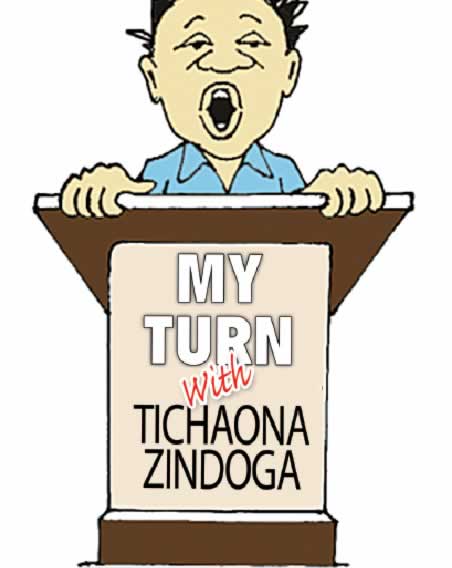Time to smoke out tobacco from schools

Tanzikwa Guranungo Correspondent
THE increase in the uptake of tobacco smoking by young people in the country and the world in general is a cause for concern. Most of these youngsters who smoke are below the age of 15 which is mostly school-going age worldwide. Statistics released recently by Global Youths Tobacco Survey (GYTS) showed that 20 percent of youth between 13 and 15 years were using tobacco products.
It is also estimated that youth in the same age group who actually smoked cigarettes constituted 16,2 percent, with the number of girls smoking almost equivalent to that of boys. Girls accounted for 15 percent of all those who were smoking.
The prevalence rate of tobacco use in the age group is almost similar to that of smoking adults who constitute 22 percent, according to a recent Zimbabwe Demographic Health Survey.
The Global Youth Tobacco Survey project was developed by the World Health Organisation and the US Centre for Disease Control and Prevention to track tobacco use among youth in countries across the world, using a common methodology and core questionnaire.
The GYTS is school based and employs a two-stage sample design to produce representative data on smoking among students aged 13-15 years.
The first stage consists of a probabilistic selection of schools, and the second consists of a random selection of classes from the participating schools.
All students in the selected classes are eligible for the survey.
In 1999, the GYTS was conducted in 13 countries and is currently in progress in over 30 countries.
This report describes data from 12 countries: Barbados, China, Costa Rica, Fiji, Jordan, Poland, the Russian Federation (Moscow), South Africa, Sri Lanka, Ukraine (Kiev), Venezuela and Zimbabwe.
The findings show that tobacco use in the surveyed age group ranged from a high of 33 percent to a low of 10 percent.
While the majority of current smokers wanted to stop smoking, very few were able to attend a cessation programme.
In most countries the majority of young people reported seeing advertisements for cigarettes in media outlets, but said anti-tobacco advertising was rare.
The majority of young people reported being taught in school about the dangers of smoking.
Environmental tobacco smoke exposure was very high in all countries.
These results show that the GYTS surveillance system is enhancing the capacity of countries to design, implement and evaluate tobacco prevention and control programmes.
However, with the increase in tobacco smoking by young people in the country, there is need for a holistic approach starting with parents, guardians and law enforcements to find ways of stopping this health hazard among young people.
A lot of awareness campaigns have to be undertaken in schools, colleges and other public places where most peers are found.
Tobacco cigarettes should not be allowed to be sold to young people under the age of 18 like what is done with alcohol. Schools, both boarding and day, should consistently monitor their schoolchildren to see if they are not smoking.
There is need to introduce lessons in both primary and secondary schools on the dangers of early smoking and drug abuse. Most young people who smoke end up taking drugs that are harmful to their bodies. Drugs such as marijuana, cough syrup such as Bronco and musombodiya are well associated with tobacco smoking. Tobacco smoking also led to abuse of alcohol by teenagers and other younger children.
When they abuse these harmful substances, some of them end up engaging in unprotected sex thereby contracting sexually transmitted diseases leading to HIV and Aids-related illnesses. This therefore calls for responsible authorities to be always on the lookout for their children. Furthermore, those who smoke and take drugs do not perform well in school and college.
Dr Lovemore Mbengeranwa, Health Services Board chairman, last month expressed concern over early use of tobacco by teenagers, saying this exposed them to chronic respiratory diseases. “This informs us that our youths in schools are using tobacco and this means the country should enhance their capacity to rapidly design, implement and evaluate tobacco control prevention programmes.” This will save lives, reduce illness and help reduce the economic burden associated with tobacco related illness and lost productivity.
WHO country representative David Okello said Zimbabwe should look at ways of monitoring and regulating advertisements and sponsorship from tobacco companies.
“Based on the findings of the 2014 GYTS, we propose the following four broad recommendations which require concerted multi-sectoral efforts by the ministries Health and Child Care and Primary and Secondary Education, working together with other arms of Government and stakeholders, to monitor and regulate tobacco advertising, promotion and sponsorship, especially targeting youth, whilst working on totally banning these practices in line with the World Health Organisation Framework Convention on Tobacco Control,” Dr Okello said.
“This also includes prohibition of all forms of tobacco advertising, promotion and sponsorship that promote a tobacco product by any means that are false, misleading, deceptive or likely to create an erroneous impression about its characteristics, health effects, hazards or emissions.”
He added that as the global tobacco market rapidly dwindles, they had noted a tendency by the tobacco industry to aggressively create new markets in the developing world by targeting youth with tobacco adverting, promotion and sponsorship activities.
In addition, a majority of youth in Zimbabwe report exposure to second- hand smoke in multiple venues with 31,8 percent at home and 48,7 percent inside enclosed public places. Because there is no safe level of exposure to second-hand smoking, policies are needed.
Furthermore, early exposure to tobacco shortens an individual’s lifespan.
“Every six seconds someone dies from tobacco use,” he said.
“Starting to smoke at younger ages increases the risk of death from smoking-related causes and lowers the age at which death is likely to occur.” Research suggests that people who start smoking in their teens and continue for two decades or more will die 20 to 25 years earlier than those who never lit up.
Young people who start smoking early in life will often find it difficult to quit smoking. Zimbabwe ratified the World Health Organisation’s convention on tobacco control in March last year. The convention has strict guidelines on the control of tobacco such as banning tobacco use in public places and advertising the products.
Tanzikwa Guranungo is Communications Manager for Zimbabwe Youth Council (ZYC).









Comments